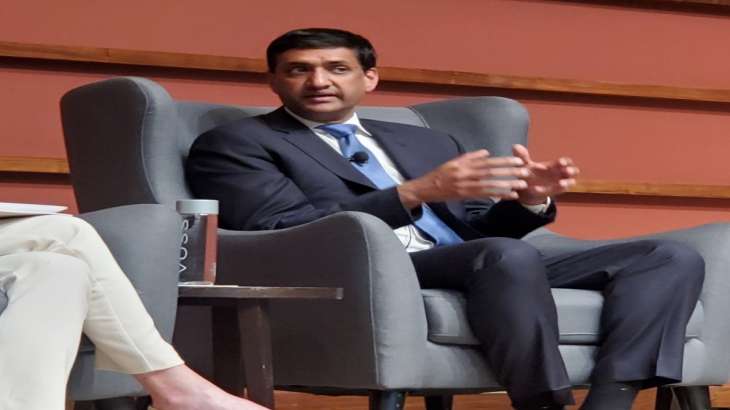
Amid the evolving situation, influential Indian-American Congressman Ro Khanna has said that Indians now see China as their biggest military threat, not Pakistan, and stressed the need for constructive rebalancing with Beijing. Gave.
Relations between China and India have almost frozen since the eastern Ladakh military standoff between the two countries in May 2020. The two countries have held 17 rounds of high-level military commanders’ talks to resolve the standoff.
India says that until there is peace in the border areas, its relations with China cannot be normal.
“constructive rebalancing with China”
“Today, we need a constructive rebalancing with China. It requires us to keep a clear eye on the threats facing us and our allies in Asia, but hope that our diplomacy and politics can make the 21st century less bloody than the 20th. Stanford’s Hoover Institution on Monday.
“There are four guiding principles for a constructive rebalancing with China: first, an economic reset to reduce the trade deficit and tensions; Second, open lines of communication; Third, effective military resistance; And fourth, respect for our Asian partners and strong economic engagement with the world,” he said.
“China is moving towards hegemony in Asia, threatening India’s borders, and treating other countries as junior partners.
The people of India now see China as their biggest military threat, not Pakistan.
Khanna, 46, represents Silicon Valley in the US House of Representatives.
“We have the technology to bring about an American manufacturing renaissance, as noted Intel CEO Andy Grove called it back in 2010. We have an Asian American diaspora that understands the need for open lines of communication and exchange with Asia ,” They said .
The Valley is pioneering cutting-edge technology in AI, cyber, space, long-range missiles and unmanned vehicles that will be essential for effective deterrence in the Taiwan Strait, he said.
It has a business community that understands that engagement — not isolation — is how they make friends around the world, especially in the Global South, and stand up for American values, he said.
America needs to build its alliances with India
Khanna pointed out that the US needed to build its alliances with India and other Asian partners, assuming they would not be satellite states.
Khanna explained, “Given the history of colonialism and the cultural pride of many Asian countries, the US cannot expect a smooth, lockstep and united alignment in the form of an Asian NATO.”
“We need to reject the form of multipolarity in Asia and the hegemony of China.
India will be an important partner in that effort. As the new co-chair of the Congressional India Caucus, I have called for strengthening our economic and defense ties between the oldest and largest democracies.
The new US-India Initiative on Critical and Emerging Technologies will further deepen our technology partnership,” Khanna elaborated.
The US, India and several other world powers have been talking about the need to ensure a free, open and prosperous Indo-Pacific in the backdrop of China’s increasing military maneuvering in the resource-rich and strategically important region.
In 2017, the US, Australia, India and Japan gave shape to the long-pending proposal of setting up the Quad to develop a new strategy to keep the vital sea lanes in the Indo-Pacific region free from any influence.
“India’s participation in the Quad, along with Japan and Australia, is vital to ensure that our allies work together to prevent China from becoming a hegemon in Asia.
In the 1950s, China and India shared a common aspiration to see Asia emerge from Western colonialism.
But Nehru’s vision of cooperation with China has soured,” Khanna said.
“We have also seen Japan, which has been hesitant to build up its defense since World War II, taking historic steps to build up its national security apparatus,” he added.
China is embroiled in heated territorial disputes in both the South China Sea and the East China Sea. China claims the entire South China Sea as its own. There are counter-claims from Vietnam, Malaysia, the Philippines, Brunei and Taiwan.
Beijing has also built and militarized several islands it controls in the region. Both regions are said to be rich in minerals, oil and other natural resources and are also important for global trade.
(With inputs from PTI)